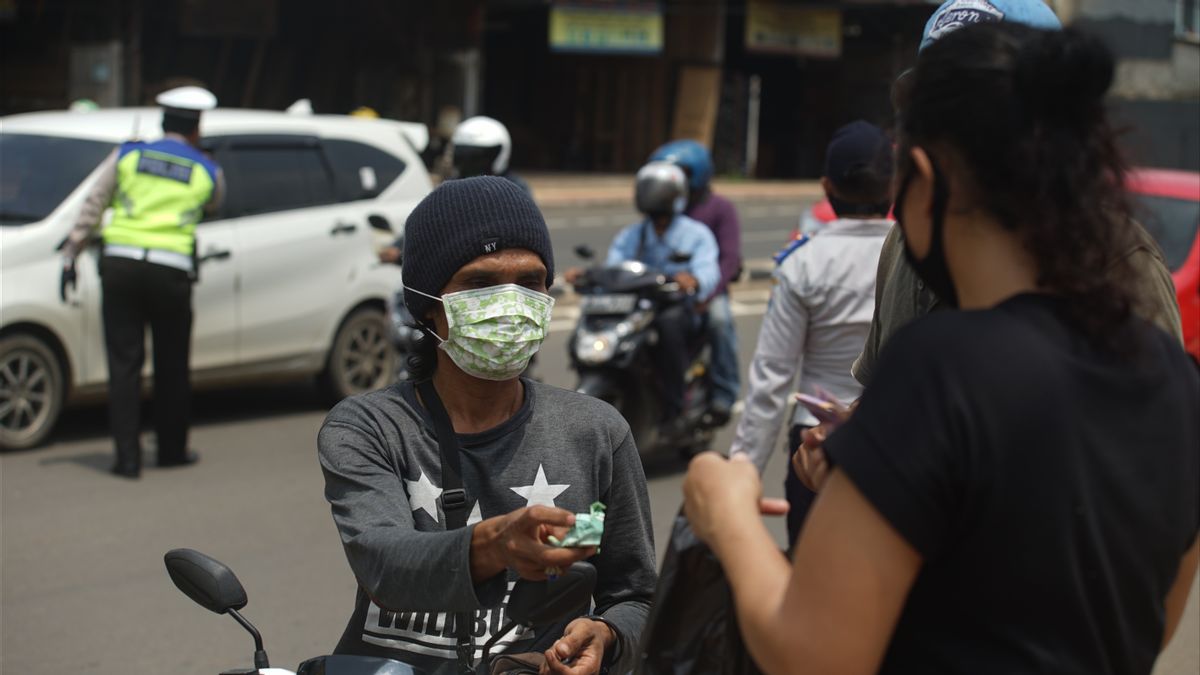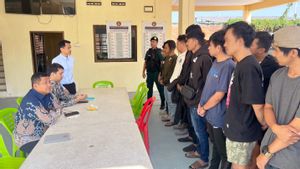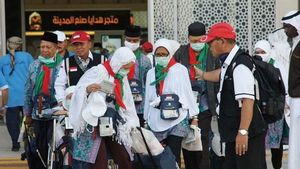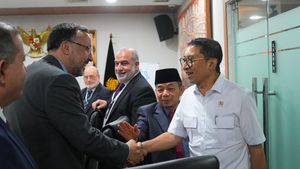JAKARTA - The Team of Economic Experts from the Task Force for the Acceleration of Handling COVID-19, Beta Yulianita Gitaharie, said that saving lives and reducing the growth rate of COVID-19 transmission is important. However, the activities of the economic and social life of the community must also continue.
"Indeed, if we observe, COVID-19 has also had an effect on changes in the joints of economic life and society," said Beta in a dialogue at the Media Center for the Task Force for the Acceleration of Handling COVID-19, Graha National Disaster Management Agency (BNPB), Jakarta May 12th.
Beta sees that this of course also worsens the condition of a community's economic life if it only sticks to health control. Two things between public health and economy must be balanced.
Especially during the pandemic, the economic downturn was clear in sight. Quoting data from the Ministry of Manpower as of April 20, 2020, there are at least 2 million workers affected by Termination of Employment (PHK). As many as 62 percent are in the formal sector and the remaining 26 percent are in the informal sector and MSMEs.
This then got worse when the figure became 6 million workers who were laid off by their companies due to the impact of the COVID-19 pandemic in the past month.
From this data, Beta stated that the public must continue to be able to carry out their activities in moving the wheels of the economy in the midst of the COVID-19 pandemic. Of course, the solution is to continue to apply discipline as a phase that is now beginning to be undertaken by society.
"People can still carry out activities, right? Continue to carry out activities like what Mr. Wiku said, also remain disciplined in paying attention to or implementing COVID-19 prevention protocols, "explained Beta.
In this case, Beta also highlights data from the Task Force for the Acceleration of Handling COVID-19, which states that the risk of death for patients aged 60 years and over reaches 45%. The data is then followed by the 46-59 years age group with a 40% risk of death.
In addition, the data from the Task Force also stated that there were comorbidities or comorbidities of hypertension, diabetes, heart disease and lung disease, which worsened the patient's condition to death.
This means that those under 45 years of age are more stable and safer when compared to those who are above the age. Then the COVID-19 death cases are clearly influenced by comobidity factors.
Furthermore, when looking at the data from the Central Statistics Agency (BPS), Beta found that as many as 130 people of productive age under 45 years contributed significantly to the economy.
Beta then also sees that jobs in the fields of health, food, food and beverage, energy, communication technology, finance, logistics, construction, strategic industries, public services and utilities as well as industries that are designated as national vital objects, or certain objects, and the private sector which serve their daily needs is an illustration that those engaged in that sector can carry out activities as an economic support.
Of course, in this case one must pay attention to several factors such as age and continue to apply health protocols according to government recommendations, including complying with PSBB recommendations.
A COVID-19 Vaccine Has Not Been FoundPreviously, Wiku Adisasmito, Chairman of the Expert Team for the COVID-19 Handling Task Force, admitted that he could not confirm when the COVID-19 pandemic would end. Although, he confirmed there were research studies that had predicted the corona virus outbreak would end in September.
However, this prediction also received refutation from other research studies. There are also those who say that there may be a second wave (second wave) of the transmission of COVID-19, thus extending the pandemic period.
"We do not know, the whole world also does not know when COVID-19 will end. Because, a vaccine for this virus has not been found. So, as long as a vaccine has not been found, we must always be able to deal with this virus," said Wiku in a discussion at Graha BNPB , East Jakarta, Tuesday, May 12.
Therefore, the best way to survive until the COVID-19 pandemic ends is to apply the term "the new normal". That is, creating a new normal condition that is different from before.
"The transformation of 'the New normal' is to organize new lives and behaviors during a pandemic which will then carry on in the future, until a vaccine is found for COVID-19," he said.
The application of "the new normal" by Wiku is an adjustment in our lifestyle so that we can break the chain and do activities as usual. We become routine activities such as working, studying, interacting, and worshiping from home.
In addition, implementing COVID-19 prevention protocols, such as wearing masks, applying physical distancing or maintaining a safe distance, and routinely washing hands with soap, cleaning hands using a hand sanitizer when outside the home, and maintaining body immunity.
"In principle, we have to accept that now we have to live together with this virus. Hopefully, everyone in the world can quickly get the vaccine, so that we defeat this virus," said Wiku.
The English, Chinese, Japanese, Arabic, and French versions are automatically generated by the AI. So there may still be inaccuracies in translating, please always see Indonesian as our main language. (system supported by DigitalSiber.id)













